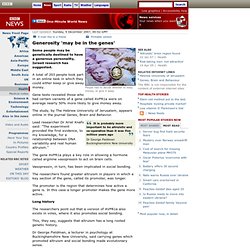

Archaeology. How Biology and Technology Shape Sex and War. Humans and chimps, our closest relatives, share a curious trait: We organize to kill members of our own species.

A new book, Sex and War, delves into how the most intelligent apes on Earth, essentially alone in the animal kingdom, evolved the ability to organize for extreme violence. UC Berkeley obstetrician, Malcolm Potts and science writer Thomas Hayden take a wide-ranging look at the many places that biology intersects with war. But the most fascinating parts of the book look at how modern technology has interacted with our Stone Age brains’ risk calculators to produce the brutality and aggression of the world today. In this Wired.com interview with Hayden and Potts, they talk about the evolutionary adaptation that allows us to kill our enemies, how chimps and bonobos inform our knowledge of human nature, and why the most destructive weapon might be a hormone, not a bomb. Wired.com: Why did you write this book? Wired.com: Why is it important that chimps also kill each other?
See Also: Human noses 'can detect danger' Our noses can quickly learn to link even subtle changes in smell with danger, claim scientists.

Volunteers who could not differentiate between two similar smells found they could do it easily after being given a mild electric shock alongside one. Brain scans confirmed the change in the "smelling" part of the brain. The US research, published in the journal Science, suggests our distant ancestors evolved the ability to keep us away from predators. The 12 volunteers were exposed to two "grassy" odours, and none of them could accurately tell the difference between them. After they were shocked while smelling one of them, they developed the ability to discriminate between the two. Researcher Dr Wen Li, of the Feinberg School of Medicine, Northwestern University, in Chicago, said: "It's evolutionary. "It warns us that it's dangerous and we have to pay attention to it.
" Complex organ She said that the sensitivity of the human nose was not vastly inferior to many other creatures. Rapid acceleration in human evolution described. Generosity 'may be in the genes' Some people may be genetically destined to have a generous personality, Israeli research has suggested.

A total of 203 people took part in an online task in which they could either keep or give away money. Gene tests revealed those who had certain variants of a gene called AVPR1a were on average nearly 50% more likely to give money away. The study, by The Hebrew University of Jerusalem, appears online in the journal Genes, Brain and Behavior. Lead researcher Dr Ariel Knafo said: "The experiment provided the first evidence, to my knowledge, for a relationship between DNA variability and real human altruism. " The gene AVPR1a plays a key role in allowing a hormone called arginine vasopressin to act on brain cells. Vasopressin, in turn, has been implicated in social bonding. The researchers found greater altruism in players in which a key section of the gene, called its promoter, was longer.
The promoter is the region that determines how active a gene is. Long history. Finds test human origins theory. Two hominid fossils discovered in Kenya are challenging a long-held view of human evolution.

The broken upper jaw-bone and intact skull from humanlike creatures, or hominids, are described in Nature. Previously, the hominid Homo habilis was thought to have evolved into the more advanced Homo erectus, which evolved into us. Now, habilis and erectus are thought to be sister species that overlapped in time.